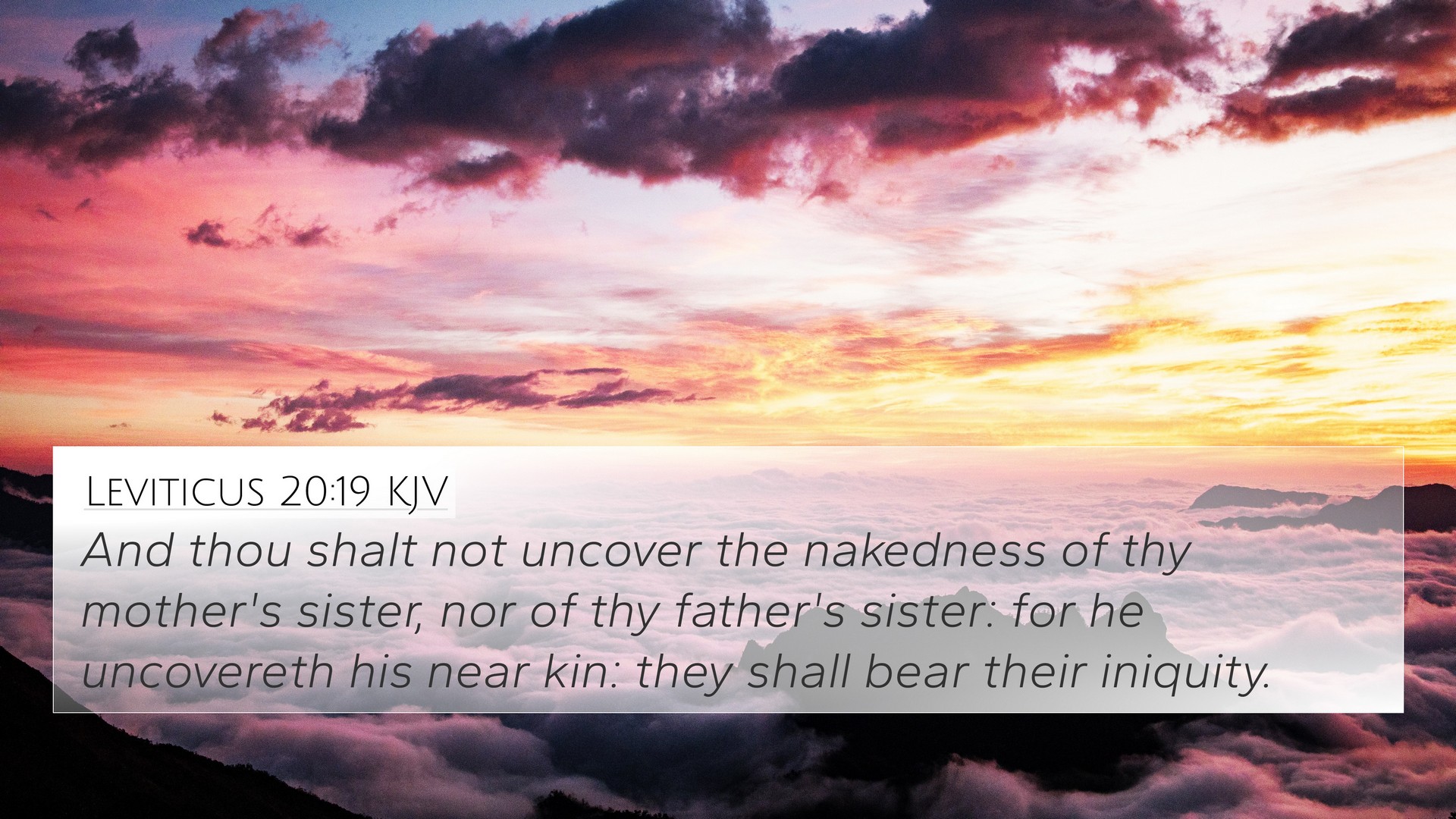Understanding Leviticus 20:19
Bible Verse: Leviticus 20:19
"And thou shalt not uncover the nakedness of thy mother's sister, nor of thy father's sister: for he uncovereth his near kin: they shall bear their iniquity."
Summary of the Verse
This verse provides a clear directive concerning sexual relations and the uncovering of nakedness within familial relationships. It emphasizes the importance of maintaining family honor and purity, highlighting the consequences of violating these commands.
Insights from Commentaries
-
Matthew Henry:
Henry discusses the significance of maintaining the sanctity of family relationships. He implies that such prohibitions are not only moral but serve to foster respect and integrity within the family unit. The violation of such laws is indicative of a deeper moral failing.
-
Albert Barnes:
Barnes interprets this verse in the context of God's law concerning sexual morality. He stresses that these prohibitions serve to protect individuals and families from the disastrous social and spiritual consequences of incest. The reference to "bearing iniquity" suggests a weighty responsibility and the seriousness of sin within the community.
-
Adam Clarke:
Clarke emphasizes that ancient customs often blurred the lines of moral boundaries, which made divine commandments essential for guiding the people. He elaborates that such instructions were not merely cultural but were intended to safeguard the people from moral decay.
Cross-References to Leviticus 20:19
Leviticus 20:19 has connections to various scriptures that underline similar themes of familial boundaries and sexual ethics. Notable cross-references include:
- Leviticus 18:12-16: Discusses unlawful sexual relations with close relatives.
- Exodus 22:19: Addresses the severity of engaging with animals and thereby establishes a moral order.
- Deuteronomy 27:20: Curses are pronounced upon those who violate these sacred family laws.
- Romans 1:26-27: Reflects on the consequences of neglecting proper sexual conduct.
- 1 Corinthians 5:1: Paul addresses issues of incest prevalent in the church.
- Ephesians 5:3: Encourages purity and moral conduct among believers.
- 1 Timothy 1:10: Reiterates the condemnation of sexually immoral practices in society.
Thematic Connections and Cross-Referencing
Leviticus 20:19 serves as a critical part of the broader narrative about holiness and purity that flows throughout the Bible. It connects with numerous themes and scriptures that establish God's expectations for human behavior and societal standards.
Inter-Biblical Dialogue
The connections between Old and New Testament teachings reveal a consistent theme of moral and ethical living. By understanding the principles laid out in Leviticus, we can better interpret similar exhortations found in the New Testament.
Exploring Connections
When exploring Biblical texts, it is helpful to utilize cross-referencing tools to identify connections. For instance:
- Engaging in Bible concordance helps to see connections more clearly.
- Using a Bible cross-reference guide can facilitate deeper study of related themes.
- Implementing cross-reference Bible study methods enriches understanding.
Conclusion
Leviticus 20:19 serves not only as a guideline for ethical conduct regarding familial relationships but also as a pivotal point in the broader conversation about morality within Scripture. By interpreting this verse through the lens of commentaries and cross-references, believers gain a richer understanding of God's design for human relationships.





